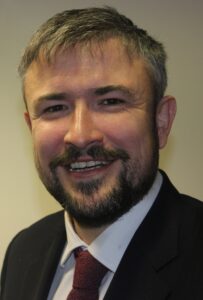‘Prevention’ has become one of the most used – or perhaps even over-used - terms in both health and social care', says Ewan King, Director of Business Development and Delivery, Social Care Institute for Excellence, in our last pre-conference blog before NCAS 2016 gets underway.

Stopping or delaying our deterioration in health and wellbeing in the first place features heavily in Sustainability and Transformation Plans, the NHS Five Year Forward View and the Care Act. And of course social care and the voluntary sector have been banging the prevention drum for years.
But the notion of ‘prevention’ is a bit like motherhood and apple pie. No one is going to say they are against it. The challenge is how do you actually turn around a system that historically manages crisis points, and considers prevention as an attractive, but perhaps unattainable prize?
Well there are definitely signs of change.
SCIE is delighted to host a session at the National Children’s and Adults Social Care (NCASC) conference this week with colleagues from Hertfordshire and Nottinghamshire – two areas who are using the new care models vanguards to push forward preventative services in their care homes. The session will explore how joint working between health and care commissioners and providers can:
- personalise care;
- prevent the necessity for more intensive care and;
- sustain the care market.
So no challenge there then!
The Hertfordshire care home vanguard has enhanced the skills of care home staff through a package of education and training. The vanguard has also developed a dedicated multi-disciplinary team for care homes (including GPs, nurse and geriatricians) that works with homes to support residents. The result? Hospital admissions from the care homes have dropped significantly.
The Mid-Nottinghamshire Better Together vanguard aims to move away from a predominantly reactive hospital-based system of urgent care, to one of home-based proactive care. The approach seeks to promote independence and, where possible, keep people out of residential and nursing care. We have also looked at how Mid Nottinghamshire Vanguard has coproduced its strategies as part of project for the Health Foundation.
 Prevention is also a recurring theme in our new Future of Care paper on Total Transformation – also being launched at NCASC.
Prevention is also a recurring theme in our new Future of Care paper on Total Transformation – also being launched at NCASC.
This paper, which was developed in partnership with PPL, Shared Lives, Birmingham City Council and Clenton Farquharson, is based on the assumption that incremental change is not an option.
Now is the time to re-build adult social care, re-shaping service interventions not only around a more individual understanding of people’s needs, but also around the creativity and capacity of individuals, families and communities that is too often overlooked. We looked at developing examples which help people and families to stay well, stay connected to others and stay strong, and that support them to carry on living at home.
'Total Transformation explores the potential for scaling up the most promising examples of care and support services to see what their impact would be on outcomes and costs. Using real data from Birmingham City Council, we have scaled up three models to estimate their potential benefits.
If we can work with a number of local areas to re-imagine social care and develop costed models which feel like a better and more sustainable system, we have the opportunity to build a national case for investment. This could be the missing piece in the Five Year Forward View for the NHS and a significant step towards integration which works for people, families and communities.
Further information
Attend SCIE sessions at NCASC
Wednesday 2 November 3.15pm: Launch of Total Transformation of Care and Support – SCIE Stand D22
Thursday 3 November 1.15-2.15pm: Integrated commissioning and prevention – Exchange 8, 9 and 10
- SCIE’s prevention resource
- Total transformation of care and support will be available here
- Presentations from the NCASC session: Integrated commissioning and prevention will be published here
- SCIE support on integrated care